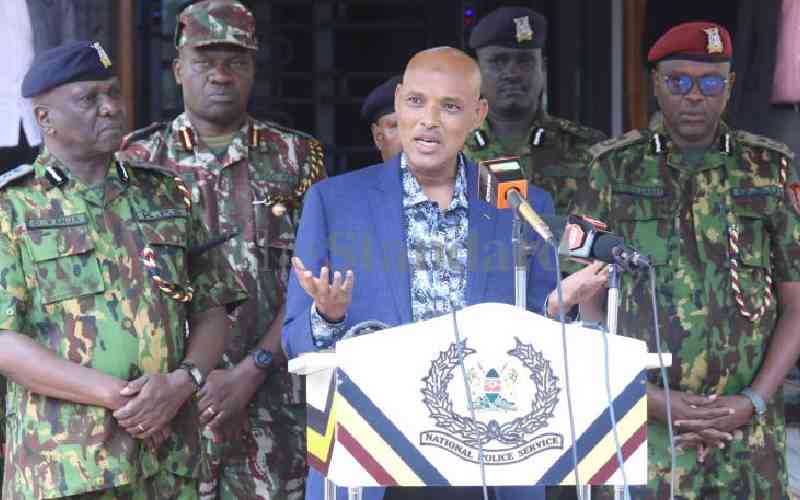×
The Standard e-Paper
Fearless, Trusted News

The arrest of a man linked to bodies recovered from an abandoned quarry that has been turned into a dumpsite in Mukuru Kwa Njenga slums has raised eyebrows over the manner in which the probe is being conducted.
There was skepticism when Directorate of Criminal Investigations (DCI) boss Mohamed Amin announced that they had arrested the prime suspect identified as Collins Jumaisi Khalusha. The 33-year-old was arrested in Kayole's Soweto area while watching Europe 2024 football finals.







